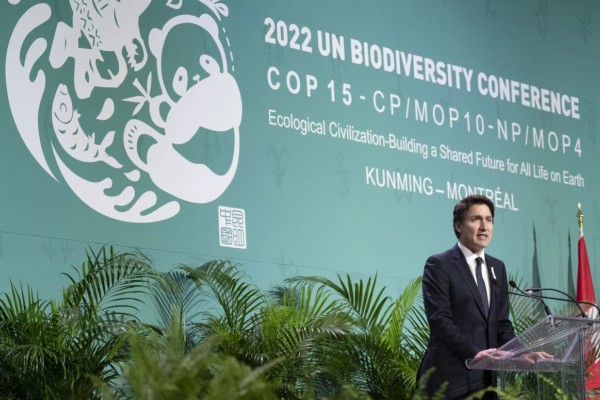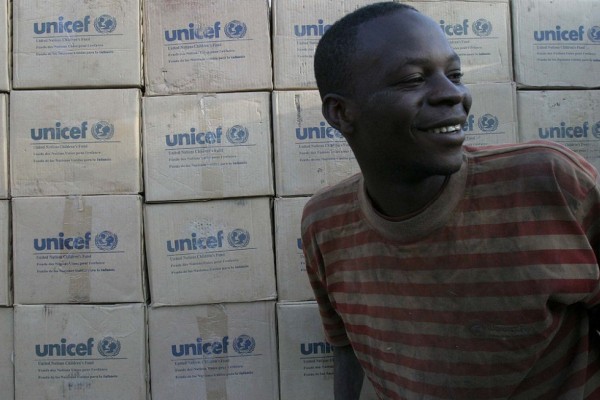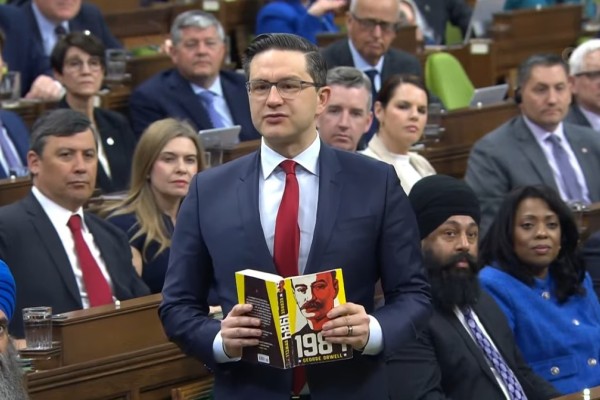AMLO’s mining reforms could lead to more conflict with Canada
Canada-based companies represent two-thirds of all foreign investment in the Mexican mining sector
Canadian PoliticsEnvironmentCanadian BusinessLatin America and the Caribbean

Mexican President Andrés Manuel López Obrador. Photo courtesy Presidencia de la República/Wikimedia Commons.
Mining companies are furious about Mexico’s proposed economic reforms, which would shorten mining concessions, provide greater environmental protections, and mandate that firms must consult with local Indigenous communities before securing approval to begin prospecting.
The reforms are a “softened” version of a mining sector overhaul proposed by President Andrés Manuel López Obrador (AMLO) in March. The proposal aimed to shorten mineral exploration rights from 50 years to 15 and cap water rights at a maximum of five years. Additionally, AMLO proposed to ban mining in protected areas and make companies pursuing mining rights prove that their operations would have no impact on nearby water supplies.
After opposition from industry and opposition leaders, the Mexican government sanded some edges off its initial proposal. The new reforms settled on shortening mining concessions to 30 years rather than 15 (companies will also have the opportunity to extend their licenses an additional 25 years). However, the cessation of mining concessions as a result of environmental degradation and illegal activities will be made easier. Federal deputies also agreed that mining companies must allocate 10 percent of their profits to the local communities in which they operate.
AMLO’s mining reforms are an expansion of his efforts to reduce foreign domination of Mexico’s mineral reserves, and part of his wider “Fourth Transformation” program of securing national sovereignty over the country’s lucrative resources. Up until now, he has not challenged the mining industry to this extent; rather, his actions toward the sector have taken the form of freezing new mining and water permits for foreign companies. As Mexico News Daily explains, “Between 1988 and 2018, 65,534 permits were granted—overwhelmingly to companies from Canada and the United States. However, since the advent of the Morena government, there has been a total halt in the approval of new permits.”
As AMLO pursues these reforms, he continues to enjoy high levels of public approval. In April, the National Institute of Statistics and Geography found that 67.8 percent of Mexicans polled had “medium-to-high levels of confidence” in AMLO’s leadership. Over half of Mexicans polled had “high confidence” in the president’s administration. Approval polls regularly put his favourability rating well above 60 percent, making him the second most popular world leader, placing him high above US President Joe Biden and Canadian Prime Minister Justin Trudeau.
Popular support for AMLO is clearly evidenced by the fact that he is able to draw crowds of 500,000 to 1 million supporters in Mexico City for his events, including to a recent rally to celebrate the 85-year anniversary of President Lázaro Cárdenas’s nationalization of the Mexican oil industry.
Douglas Coleman, CEO of the Mexican Mining Center, sums up industry views on AMLO’s progressive reforms. In an interview with Forbes, he called Mexico “the most attractive country for mining exploration in the region,” but railed against AMLO, saying:
I’d describe AMLO’s attitude towards Mexico’s mining sector as distrustful, antagonistic, and uninformed. I believe foreign ownership of mining concessions goes against AMLO’s nationalistic ideology and he views the industry as a necessary evil. He often makes statements accusing Canadian companies of profiting from Mexico’s mineral resources while leaving more harm than benefit to the communities where they operate.
Canada-based companies represent two-thirds of all foreign investment in the Mexican mining sector, with the number of Canadian companies in Mexico growing after the imposition of NAFTA. Numerous Mexican governments prior to AMLO have done everything possible to cater to transnational mining companies – now that AMLO is making moves toward restoring Mexico’s sovereignty over the minerals in its territory, however, Canadian officials are expressing concern.
On November 23, 2022, Canadian Trade Minister Mary Ng travelled to Mexico City to meet with representatives from major Canadian businesses operating in Mexico’s “energy, mining, and manufacturing sectors.” Ng “reaffirmed Canada’s commitment to engage with Mexico to resolve [Canadian companies’] concerns, particularly regarding the rule of law, permit issues, and changes to Mexico’s energy sector.”
On January 9, 2023, Ng returned to Mexico City to complain about AMLO’s energy reforms and his efforts to increase state sovereignty over the country’s mineral wealth. In a meeting with Mexico’s Secretary of Economy Raquel Buenrostro, Ng “expressed concerns regarding the treatment of Canadian mining companies in Mexico and the need for transparent processes for mining sector permits,” while claiming that “Canadian companies, including those in the mining sector, are leaders in establishing inclusive and sustainable workplace practices.”
And on April 26, Ng once more “expressed concern” about Mexico’s mining reforms on a call with Buenrostro. Ng “urged Mexico to ensure they are upholding the spirit of commitments made by leaders at the North American Leaders Summit and of the Canada-United States-Mexico Agreement,” and called for the Mexican government to consult with “all stakeholders regarding the proposed reforms, including with Canadian companies, which represent the largest group of foreign investors in Mexico’s mining sector.”
As AMLO’s government pushes forward with its progressive reforms to the mining sector, which place greater value on environmental protection, Indigenous consultation, and the wellbeing of communities in the proximity of extractive projects, Canada will continue to look for ways to undermine his agenda.
As with the ongoing energy dispute, Ottawa may challenge AMLO’s reforms through the CUSMA, the NAFTA trade agreement’s successor. In the words of Mexico News Daily: “Canadian companies are major investors in Mexico’s mining sector. If the Canadian government believes Canadian miners are being treated unfairly in Mexico, it could potentially challenge Mexico’s laws under [the CUSMA], the North American free trade pact that superseded NAFTA in 2020.”
If Ottawa chooses to challenge the Mexican mining reforms, they will only be further entrenching themselves on the side of transnational profit-making against AMLO’s popular government.
Ottawa’s main enemy in the country is not the Mexican president, but Mexico’s democracy itself, which elected a leader and a party to implement the kinds of reforms that Canada is now trying to impede.
Owen Schalk is a writer from Manitoba. His book on Canada’s role in the war in Afghanistan will be released by Lorimer in September. You can preorder it here. To see more of his work, visit www.owenschalk.com.










